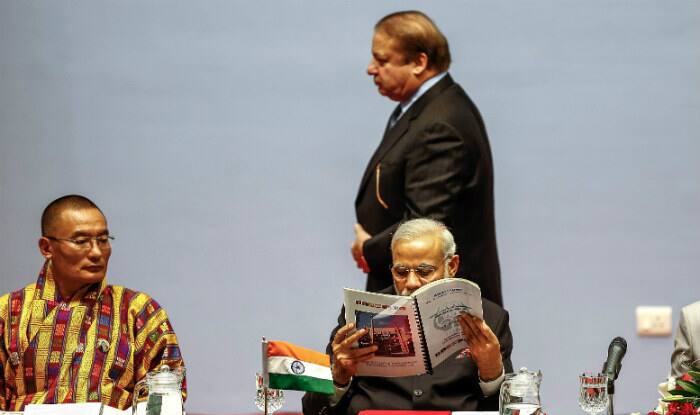
By clicking “Accept All Cookies”, you agree to the storing of cookies on your device to enhance site navigation, analyze site usage, and assist in our marketing efforts Cookies Policy.

New Delhi, September 28: In the aftermath of the Uri attacks which killed 19 Indian soldiers, the Modi government moved to isolate Pakistan diplomatically, in all international groupings. This ambitious plan was bound to receive some traction in the Indian subcontinent and none at all beyond that. As per latest news reports, Afghanistan, Bangladesh and Bhutan joined India in boycotting the 19th SAARC summit, scheduled to be held in Islamabad in November. As a result, the summit has been been called off.
It shouldn’t come as a surprise that these countries have decided to back New Delhi’s bid to isolate Pakistan. Afghanistan has often found itself a victim to terror attacks perpetrated by Taliban, based out of Quetta in Pakistan. When the new government in Kabul came to power in 2014, it reached out to Islamabad for a possible Af-Pak rapprochement. Afghan president Ashraf Ghani soon realised Pakistan’s lack of will or ability to deal with terror outfits within its borders. As for Bangladesh, it has always had bitter relations with Pakistan. Following the Dhaka attack earlier this year, Bangladesh alleged Pakistan’s involvement, through its intelligence agency, ISI. So Sheikh Hasina’s government supporting India’s initiative isn’t surprising either.
(ALSO READ: Sushma Swaraj speech at UN: 5 issues she would raise to isolate Pakistan on international forum)
Seeking to isolate Pakistan, not just in South Asia but in the international arena too, the Indian diplomatic corps campaigned for it at the United Nations. The call was reiterated by Externals Affairs Minister Sushma Swaraj during her address to the UN General Assembly. Despite the efforts, the move to isolate a nuclear armed nation is unlikely to yield the desired result.
While Islamabad may not have many friends in the world, New Delhi still lacks the diplomatic clout to influence other countries’ bilateral relations. It would require the backing of major economic and military powers, which is improbable. United States, despite its differences with Pakistan wouldn’t risk isolating a nuclear armed nation, given the risk of it going rogue. Moreover, isolating Pakistan would mean losing or limiting US influence in Pakistan’s state of affairs, which is not in their national interest. Another big power, China has lent it continuous support to Pakistan. The ‘all-weather friends’ have stood by each other and Delhi wouldn’t expect its support. As the Modi government campaigns for Pakistan’s isolation, Russian troops are holding joint military exercises with their Pakistani counterparts. Also, there is no sign of censure from India’s European partners.
Other regional powers in Asia don’t seem to be taking India’s call seriously either. Saudi Arabia has supported Pakistan in past, often at the cost of its relations with India, and Iran has recently expressed its desire to be a part of the China-Pakistan Economic Corridor (CPEC), China’s $46 billion investment in the country.
The terror attack in Uri has evoked a strong reaction from the Indian public, many of whom demand a strong military action. Prime Minister Narendra Modi and his government are still weighing options, but so far substantive progress has been very little. Modi has called for review meeting of the “Most Favoured Nation” status granted to Pakistan under the World Trade Organisation agreements. This status was granted by India in 1996, and hasn’t been reciprocated by Pakistan. Also, meetings have been held to optimally utilise India’s share in the Indus river treaty. The government has also called off Indus Water Commission talks, declaring “blood and water cannot flow together”. The significance of this decision is may seem inflated given that the last meeting was held in July 2016 and the next one isn’t due until July 2017.
For breaking news and live news updates, like us on Facebook or follow us on Twitter and Instagram. Read more on Latest India News on India.com.